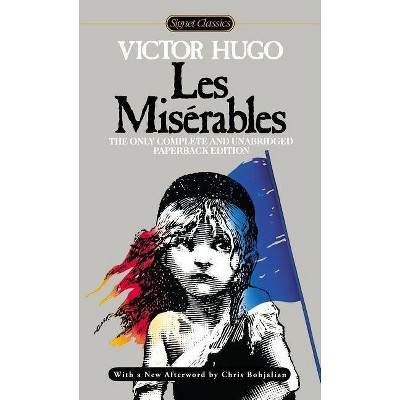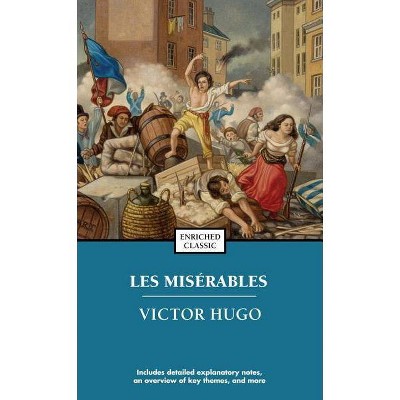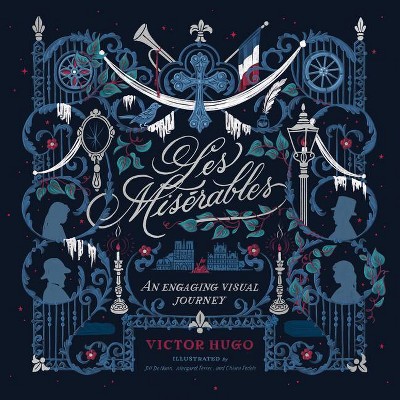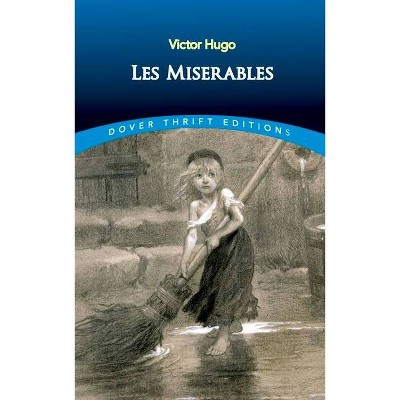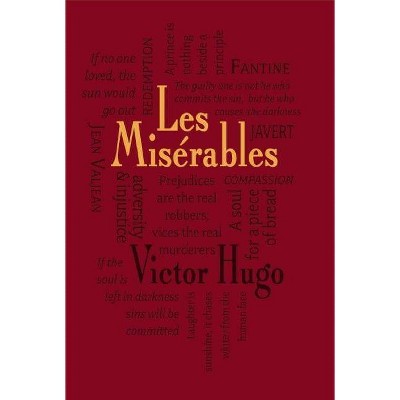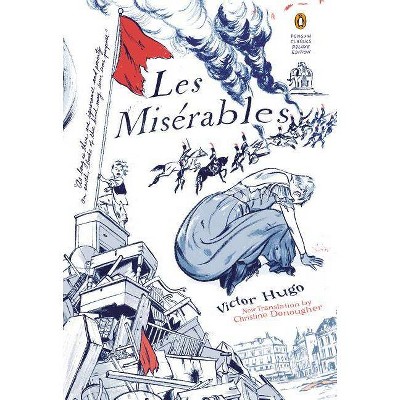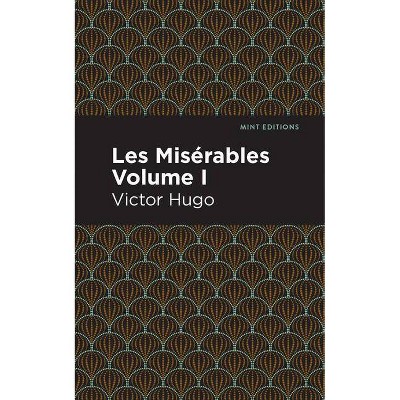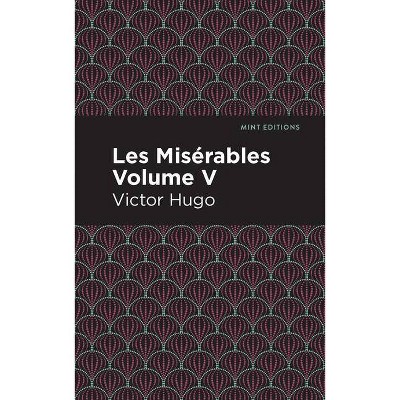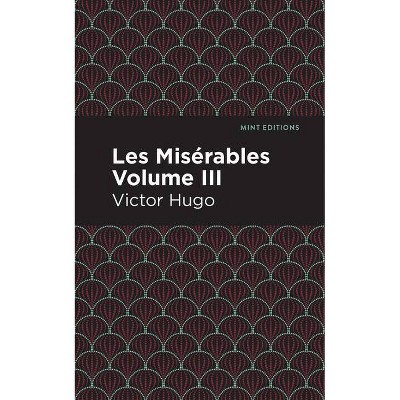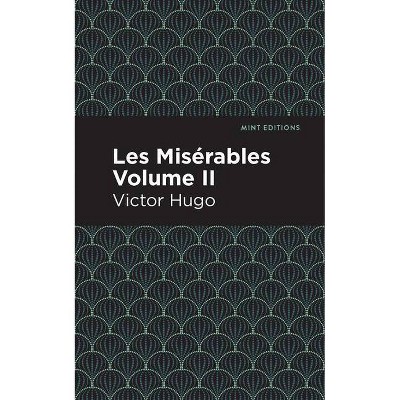Los Miserables / Les Miserables - by Victor Hugo (Paperback)
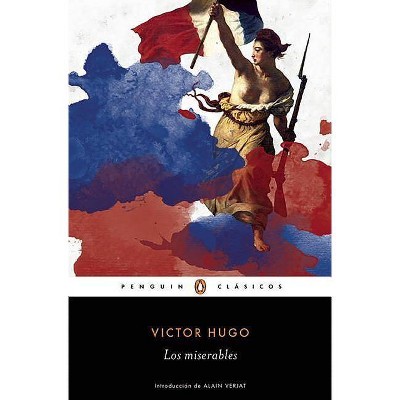
Similar Products
Products of same category from the store
AllProduct info
<p/><br></br><p><b> About the Book </b></p></br></br>Victor Hugo's towering novel of Jean Valjean, his unjust imprisonment, and his lifelong flight from a relentless police officer.<p/><br></br><p><b> Book Synopsis </b></p></br></br>Les misérables (1862) es una novela publicada por Victor Hugo y está considerada como una de las obras más conocidas del siglo XIX. <p/>La novela, de estilo romántico, plantea a través de su argumento un razonamiento sobre el bien y el mal, sobre la ley, la política, la ética, la justicia y la religión. <p/>El autor confesó que se había inspirado en Vidocq, criminal francés que se redimió y acabó inaugurando la Policía Nacional francesa, para crear a los dos protagonistas y que la historia de su país le había inspirado para situar el contexto histórico: por ello, los personajes viven la Revolución francesa (1789-1799) y los posteriores cambios políticos. Además, el autor analiza los estereotipos de aquel momento y muestra su oposición a la pena de muerte. En definitiva, esta novela es una defensa de los oprimidos, vivan en el lugar y momento histórico que vivan. <p/><b>ENGLISH DESCRIPTION</b> <p/>Les Misérables is a French historical novel by Victor Hugo, first published in 1862, that is considered one of the greatest novels of the 19th century. <p/>In the English-speaking world, the novel is usually referred to by its original French title. However, several alternatives have been used, including The Miserables, The Wretched, The Miserable Ones, The Poor Ones, The Wretched Poor, The Victims and The Dispossessed. Beginning in 1815 and culminating in the 1832 June Rebellion in Paris, the novel follows the lives and interactions of several characters, particularly the struggles of ex-convict Jean Valjean and his experience of redemption. Examining the nature of law and grace, the novel elaborates upon the history of France, the architecture and urban design of Paris, politics, moral philosophy, antimonarchism, justice, religion, and the types and nature of romantic and familial love. <p/>Les Misérables has been popularized through numerous adaptations for the stage, television, and film, including a musical and a film adaptation of that musical. The appearance of the novel was highly anticipated and advertised. Critical reactions were diverse, but most of them were negative. Commercially, the work was a great success globally.<p/><br></br><p><b> About the Author </b></p></br></br><b>Victor Hugo</b> (1802-1885) nació en Besançon, Francia. Educado en escuelas privadas de París, empezó a escribir siendo muy joven. Poeta, novelista y dramaturgo, llevó a sus obras su espíritu inconformista, que sazonó con grandes dosis de sentimentalismo y anécdotas históricas. En sus obras, exponentes máximos del romanticismo literario, siempre volcó su ideología liberal, que le obligó a exiliarse de su país en más de una ocasión. Tras el volumen de poesía <i>Odas y poesías diversas</i> (1822), las novelas <i>Han de Islandia</i> (1823) y <i>Bug-Jargal</i> (1824), y los poemas de <i>Odas y baladas</i> (1826), escribió <i>Cromwell</i> (1827), extenso drama histórico, y <i>Marion de Lorme</i> (1829), obra teatral censurada por ser demasiado liberal. Pero no fue hasta 1830, con la publicación y el estreno de <i>Hernani</i>, posteriormente adaptada por Verdi, cuando logró el reconocimiento del público y de la crítica. A <i>Hernani </i>siguieron la novela <i>Notre-Dame de París</i> (1831), la obra teatral <i>El rey se divierte</i> (1832, adaptada por Verdi en <i>Rigoletto</i>), <i>Lucrecia Borgia</i> (1833), <i>Claude Gueux</i> (1834), <i>Ruy Blas</i> (1838) y <i>Les Burgraves</i> (1843), también obra teatral, que le supusieron su ingreso en la Academia Francesa en 1841. Durante el Segundo Imperio emigró a Bélgica, donde escribió la sátira <i>Napoleón el pequeño</i> (1852), el poema épico <i>La leyenda de los siglos</i> (1859-1883) y terminó la que sería su obra más extensa y famosa, <i>Los miserables</i> (1862). Regresó a Francia en 1870, donde siguió publicando: <i>El noventa y tres</i> (1874) y <i>El arte de ser abuelo</i> (1877). Murió en París, y sus restos fueron expuestos en el Arco de Triunfo y luego trasladados al Panteón, donde fue sepultado junto a las mayores celebridades francesas.
Price History
Cheapest price in the interval: 15.99 on March 10, 2021
Most expensive price in the interval: 15.99 on November 8, 2021
Price Archive shows prices from various stores, lets you see history and find the cheapest. There is no actual sale on the website. For all support, inquiry and suggestion messagescommunication@pricearchive.us
